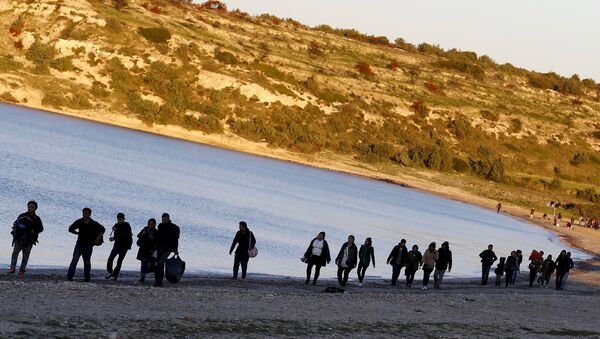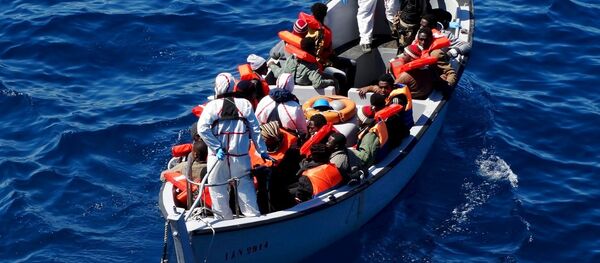The EU announced on March 18 that it had reached agreement with the government in Ankara for "irregular migrants" — those who did not meet asylum criteria — arriving in Greece would be returned to Turkey and swapped on a one-for-one basis with Syrian refugees who would be admitted into EU member states.
The one-for-one swap system was brought in on March 20, with all new arrivals coming under the terms of that deal. However, those who arrived before that date are being held in the hotspots, which the UNHCR says amounts to "mandatory detention."
However, it is understood that the first returns are expected to be taken by boat from the Greek islands to Dikili, north of the city of Izmir on Turkey's Aegean coast, starting on April 4. However, doubts remain over how they will be housed and where they will be taken in the long-term.
"Our worries are that not just Dikili but the whole region's infrastructure is not ready if they stay here — whether it's health or education facilities. We have expressed these worries," Dikili's mayor, Mustafa Tosun, told Reuters by telephone.
"We can't get information from the authorities… we only hear rumors," he said, adding that the area was a tourist destination ill-suited to sheltering migrants in the long-term.
Lack of Safeguards
Doubts remain over whether Greece and Turkey have made legislative changes to put the migrant deal into action and whether they have the capacity to process the migrants.
The controversial one-for-one deal has drawn criticism from human rights groups, who say the enforced return of migrants to a third party country with no certainty of how they will be looked after goes against the spirit — if not the word — of the Geneva Convention on Human Rights.
Death rates likely to increase as refugees are forced to take riskier routes, study suggests https://t.co/vXXFIzm6aO pic.twitter.com/o3RZXCpbxy
— UNHCR Central Europe (@RefugeesCE) 30 March 2016
The UNHCR is concerned that the EU-Turkey deal is being implemented before the required safeguards are in place in Greece. At present, Greece does not have sufficient capacity on the islands for assessing asylum claims, nor the proper conditions to accommodate people decently and safely pending an examination of their cases.
"UNHCR is not a party to the EU-Turkey deal, nor will we be involved in returns or detention. We will continue to assist the Greek authorities to develop an adequate reception capacity," Fleming said.



